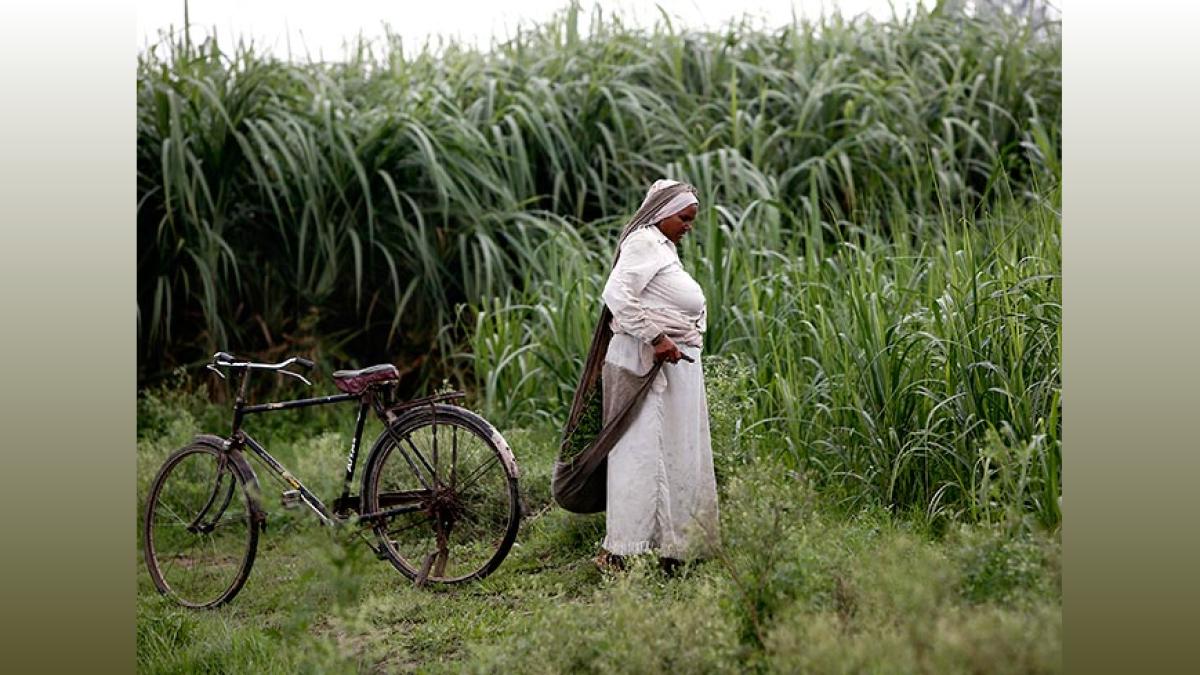UP Bioplastic Policy: BCML's Rs 2000cr PLA Project
Balrampur Chini Mills (BCML) will finalize its Rs 2,000 crore bioplastic plant in UP once the policy details are released. The policy offers incentives for companies investing in sustainable materials, including subsidies and tax benefits.

Kolkata, Oct 4 (PTI) Integrated sugar producer Balrampur Chini Mills Limited (BCML) on Friday said the company will finalise its Rs 2,000 crore investment in India's first industrial PLA (polylactic acid) bioplastic manufacturing plant once the policy fine print is released.
PLA offers a triple advantage: biobased production, biodegradability under industrial compost conditions, and chemical recyclability, making it a "game-changer" in sustainable material solutions.
As traditional plastic consumption continues to rise, threatening our environment, this forward-thinking policy couldn't have come at a better time, Executive Director of Balrampur Chini, Avantika Saraogi, told PTI in an interview.
"We wholeheartedly commend the Uttar Pradesh government for pioneering India's first bioplastic policy, a game-changer in our fight against plastic pollution. We believe this strategic intervention will attract significant investments in the bioplastics sector and drive India towards a greener economy," Saraogi said.
She noted that as their project was announced in February, they were able to provide inputs to the UP government regarding sustainable plastics.
The new policy will not only positively impact the upcoming PLA project but also encourage other players to invest in sustainability in the state, supporting the government's goal of achieving net zero emissions by 2070.
Asked how the policy will specifically impact the BCML PLA project financially, Saraogi said, "We will need some more time to make those calculationsat least a few monthsbecause we are still in the process of finalising the exact investment figures though broad capex is estimated at Rs 2000 crore."
The company is awaiting detailed rules and fine print of the regulations, which are expected shortly and will help BCML finalise the numbers for the project and measure the policy benefits, she said.
BCML expects the bioplastic plant to be operational in two-and-a-half years in 2026, with an initial capacity of 75,000 tonnes and a projected revenue potential of about Rs 1,700-1,800 crore.
Bioplastics account for just one per cent of current consumption, indicating significant untapped potential.
Indian Plastic Federation President Lalit Agarwal noted that the pricing economy is preventing wider adoption, although the price gap is narrowing.
Saraogi added that the UP's bioplastic policy offers companies investing Rs 1,000 crore or more a subsidy of up to 50 per cent of their capital investment for seven years, along with interest subvention for the same duration, with details on the level of interest subvention still awaited.
Other highlights of the policy include 100 per cent reimbursement of SGST for 10 years and duty-free electricity for 10 years. The policy also includes stamp duty exemption or remission for transactions made one year before or after the policy cutoff date, with overall benefits not exceeding 200 per cent of the investments made.
By linking agriculture to industry, the policy encourages the use of biomass, such as sugarcane, which is a key raw material for PLA bioplastics.
Officials said this approach supports the growth of agro-based economies while addressing the global demand for sustainable materials. It also provides opportunities beyond SMEs, including waste management service providers, municipalities, and recycling operators, to participate in the bioplastic supply chain.
PLA offers a triple advantage: biobased production, biodegradability under industrial compost conditions, and chemical recyclability, making it a "game-changer" in sustainable material solutions.
As traditional plastic consumption continues to rise, threatening our environment, this forward-thinking policy couldn't have come at a better time, Executive Director of Balrampur Chini, Avantika Saraogi, told PTI in an interview.
"We wholeheartedly commend the Uttar Pradesh government for pioneering India's first bioplastic policy, a game-changer in our fight against plastic pollution. We believe this strategic intervention will attract significant investments in the bioplastics sector and drive India towards a greener economy," Saraogi said.
She noted that as their project was announced in February, they were able to provide inputs to the UP government regarding sustainable plastics.
The new policy will not only positively impact the upcoming PLA project but also encourage other players to invest in sustainability in the state, supporting the government's goal of achieving net zero emissions by 2070.
Asked how the policy will specifically impact the BCML PLA project financially, Saraogi said, "We will need some more time to make those calculationsat least a few monthsbecause we are still in the process of finalising the exact investment figures though broad capex is estimated at Rs 2000 crore."
The company is awaiting detailed rules and fine print of the regulations, which are expected shortly and will help BCML finalise the numbers for the project and measure the policy benefits, she said.
BCML expects the bioplastic plant to be operational in two-and-a-half years in 2026, with an initial capacity of 75,000 tonnes and a projected revenue potential of about Rs 1,700-1,800 crore.
Bioplastics account for just one per cent of current consumption, indicating significant untapped potential.
Indian Plastic Federation President Lalit Agarwal noted that the pricing economy is preventing wider adoption, although the price gap is narrowing.
Saraogi added that the UP's bioplastic policy offers companies investing Rs 1,000 crore or more a subsidy of up to 50 per cent of their capital investment for seven years, along with interest subvention for the same duration, with details on the level of interest subvention still awaited.
Other highlights of the policy include 100 per cent reimbursement of SGST for 10 years and duty-free electricity for 10 years. The policy also includes stamp duty exemption or remission for transactions made one year before or after the policy cutoff date, with overall benefits not exceeding 200 per cent of the investments made.
By linking agriculture to industry, the policy encourages the use of biomass, such as sugarcane, which is a key raw material for PLA bioplastics.
Officials said this approach supports the growth of agro-based economies while addressing the global demand for sustainable materials. It also provides opportunities beyond SMEs, including waste management service providers, municipalities, and recycling operators, to participate in the bioplastic supply chain.
You May Like To Read
TODAY'S MOST TRADED COMPANIES
- Company Name
- Price
- Volume
- Vodafone-Idea
- 11.96 (+ 5.75)
- 113885452
- Sylph-Industries
- 0.77 ( -1.28)
- 51063360
- Mangalam-Industrial
- 0.90 ( -1.10)
- 39473361
- Shish-Industries
- 14.02 ( -9.96)
- 38945873
- Ola-Electric-Mobilit
- 34.40 (+ 9.97)
- 38895972





